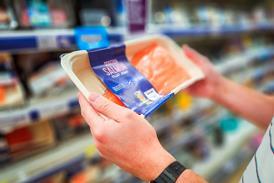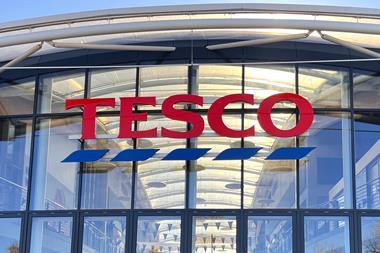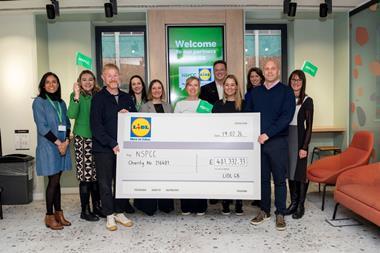Tesco's third-quarter trading statement this week has underlined one of the few certainties in the UK's increasingly volatile grocery market, namely that the operators focused on efficiency and low prices are the ones who are the most successful.
With UK like-for-like sales growth of 3.8% comfortably ahead of the industry average and total sales growth of 7.3%, the country's top retailer has again impressed.
And because the strategy is working so well, it is hardly surprising that Tesco and its EDLP-focused rivals Asda and Morrisons continue to keep up the pressure on price. Given that this trio now controls more than 41% of grocery sales in this country as measured by our TradeTrak survey it is easy to understand why price has become such an important factor for so many consumers.
All the available research shows low prices now tops the list of priorities for most shoppers when buying food and it invariably scores more highly than taste or appearance. Retailers have little choice but to respond to that trend witness The Grocer 33 shopping basket, which this week came in at under £36 for the first time.
As we prepare for Christmas, the pressure only intensifies. The supermarket buyers we quizzed for this week's reader panel (see page 22) agree that the festive season will be price-driven and they say that's largely because consumers expect to see prices driven lower.
So there you have it. Christmas 2002 will be another cut-throat experience. And the new year will be just as tough. That's the reality of trading in the grocery market and there's no point whingeing about it.
Yet I still cast my mind back to the explosive and persuasive speech given at this year's IGD convention by Paul Polman of Procter & Gamble. Retailers, he said, were driving value out of the UK market with their focus on price, and this was placing greater pressure on the innovation needed to continue delighting consumers. Sure, retailers will argue shoppers are being delighted by low prices. But I still can't help feeling shoppers are missing out as a result of this deflationary fixation.
{{COMMENT & LETTERS }}
With UK like-for-like sales growth of 3.8% comfortably ahead of the industry average and total sales growth of 7.3%, the country's top retailer has again impressed.
And because the strategy is working so well, it is hardly surprising that Tesco and its EDLP-focused rivals Asda and Morrisons continue to keep up the pressure on price. Given that this trio now controls more than 41% of grocery sales in this country as measured by our TradeTrak survey it is easy to understand why price has become such an important factor for so many consumers.
All the available research shows low prices now tops the list of priorities for most shoppers when buying food and it invariably scores more highly than taste or appearance. Retailers have little choice but to respond to that trend witness The Grocer 33 shopping basket, which this week came in at under £36 for the first time.
As we prepare for Christmas, the pressure only intensifies. The supermarket buyers we quizzed for this week's reader panel (see page 22) agree that the festive season will be price-driven and they say that's largely because consumers expect to see prices driven lower.
So there you have it. Christmas 2002 will be another cut-throat experience. And the new year will be just as tough. That's the reality of trading in the grocery market and there's no point whingeing about it.
Yet I still cast my mind back to the explosive and persuasive speech given at this year's IGD convention by Paul Polman of Procter & Gamble. Retailers, he said, were driving value out of the UK market with their focus on price, and this was placing greater pressure on the innovation needed to continue delighting consumers. Sure, retailers will argue shoppers are being delighted by low prices. But I still can't help feeling shoppers are missing out as a result of this deflationary fixation.
{{COMMENT & LETTERS }}



















No comments yet